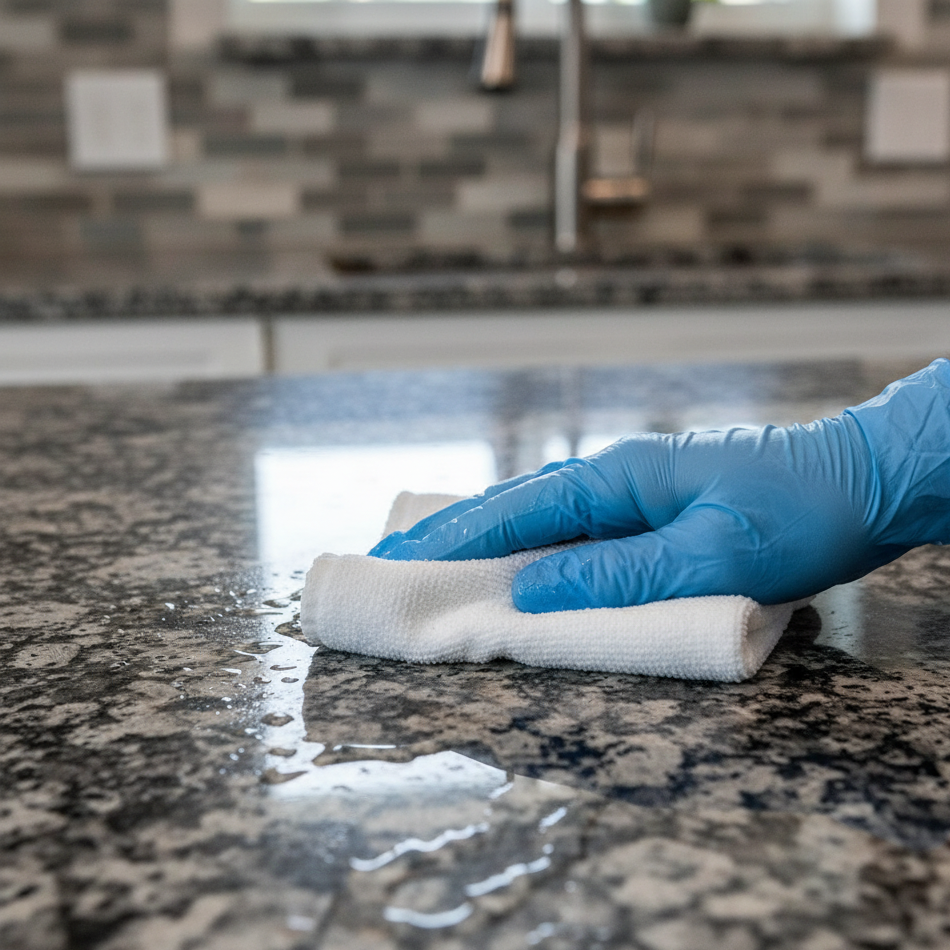The Truth About Countertop Sealing: Do You Really Need It?
Homeowners often wonder if they really need to seal their countertops. There are plenty of myths and confusion out there about sealing granite, marble, quartz, and other surfaces. In this post, we’ll take an expert yet friendly look at what sealing actually does, which countertop materials require sealing (and which don’t), and how to keep your counters looking beautiful for years.
What Is Countertop Sealing?
Sealing is the process of applying a clear liquid that penetrates porous stone and forms an invisible barrier. This barrier helps repel water, oils, and stains, giving you extra time to clean spills before they soak in.
Sealing is important, but it’s not permanent, and it’s not foolproof. A sealer slows down absorption but doesn’t make a countertop indestructible. Acidic spills (like lemon juice or vinegar) can still dull marble, even if it’s sealed. Think of sealing as buying time, not creating a force field.
Which Countertops Need Sealing?
Not all countertops require sealing. It depends on the porosity of the material.
Granite – Usually needs sealing, especially lighter varieties.
Marble – Softer and more porous than granite, it definitely benefits from regular sealing.
Limestone & Travertine – Highly porous, these always need sealing.
Quartzite – Durable but still porous, so sealing is recommended.
Soapstone – Naturally dense and stain-resistant; usually doesn’t need sealing (mineral oil is often used for appearance).
Quartz & Porcelain: Why They Don’t Need Sealing
Two of today’s most popular countertop options — engineered quartz and porcelain slab — are both non-porous.
Quartz (engineered stone) – Made with quartz crystals and resins, quartz countertops are sealed during manufacturing. They resist stains without any after-market sealing. If it’s a honed finish, you will need to seal.
Porcelain – Fired at extremely high temperatures, porcelain slabs have a glass-like surface that is completely non-porous. Like quartz, they are naturally stain-resistant and never need sealing.
If you own quartz or porcelain, sealing is one task you can confidently skip.
Common Sealing Myths Busted
Myth: All stone needs sealing.
Fact: Some granites are too dense to absorb sealer, and engineered quartz/porcelain never needs it.Myth: Sealing is permanent.
Fact: Most sealers wear off in 6 months to a few years. Resealing is part of normal care.Myth: Sealing prevents all stains and etching.
Fact: Sealing reduces staining but doesn’t stop etching from acids or prevent damage if spills sit too long.Myth: Sealing changes the look.
Fact: Penetrating sealers are invisible and won’t alter shine or color.
How to Tell If It’s Time to Reseal
Do the water test:
Place a few drops of water on the surface.
Wait 5–10 minutes.
If the water beads, the sealer is intact. If it soaks in and darkens the stone, it’s time to reseal.
Beyond Sealing: Everyday Care
Wipe spills quickly, especially oils and acidic liquids.
Use pH-neutral cleaners (avoid vinegar, bleach, or ammonia).
Always use trivets under hot pots and pans.
Cut on a board, not directly on the counter.
Reseal when your countertop shows it’s ready, not on a fixed schedule.
Bottom Line
Seal porous stones like granite, marble, quartzite, limestone, and travertine.
Skip sealing if you have quartz or porcelain — they don’t need it.
Remember: sealing helps, but it doesn’t make your counters invincible. Good everyday care is the key to long-lasting beauty.
At Best Countertops Inc., we help homeowners across Concord and the East Bay choose, seal, and maintain their countertops. If you’re unsure whether your stone needs sealing, our team is happy to advise.

